With Prince Philip’s death, Prince Charles takes centre stage
As Philip is laid to rest, his eldest son steps up. Sometimes accused of political meddling, Charles has already foreshadowed that his way will be very different.
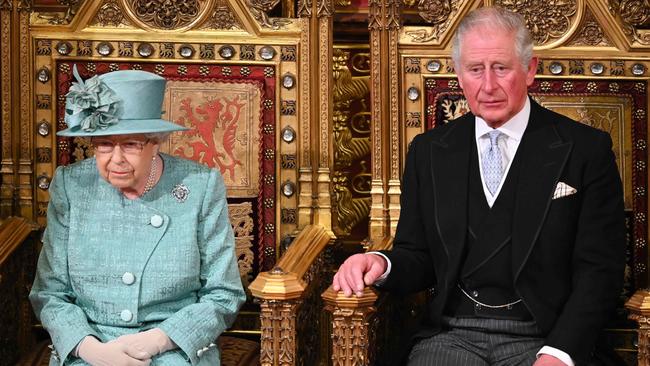
It is but a quirk of timing that Prince Philip died the month his wife of 73 years, the Queen, celebrates her 95th birthday.
For not that many years ago a loose plan was firmed up by Buckingham Palace courtiers that the Queen could step back from overseas travel and significantly reduce her royal workload so by the time she reached 95 — a date that arrives in less than a week — many of the monarchal functions could be handled by her eldest son and heir, Prince Charles.
As Philip is laid to rest overnight Saturday in a ceremonial funeral that has been pared down because of the pandemic, but that still nods to his military career and decades long service to the crown, there is a distinct sense of a new Charlemagne era.
And despite a last-minute brouhaha over the dress code, all eyes are turned, not to the fissure between princes Harry and William but to how 72-year-old Charles will cope.
As the longest serving heir apparent, Charles has had plenty of time to think about being king, and his style can be seen in his embrace of conservation and organic farming, and encouragement of youth and entrepreneurial spirit through the Prince of Wales Trust.
He has overcome, through the passing of time and an increasing public acceptance of his wife Camilla, the Duchess of Cornwall, the disaster of his first marriage to Princess Diana.
His supporters point to Charles’s reimagining of the Duchy of Cornwall, which provides his income, to show how modern farming practices can be environmentally sustainable, and his big thinking even produced an architecturally designed town, Poundbury, on land in Dorset, that has been deemed a huge success.
Charles, sometimes accused of political meddling with long letters to various government officials, has already foreshadowed that his way will be very different to that of his parents. In 2018 he told the BBC: “The idea that I am going to go in exactly the same way if I have to succeed is complete nonsense … the two situations are completely different.”
It was always a strong chance that by this time, in his eighth decade, Charles would be the most senior male royal. Yet Philip’s peaceful death aged 99 at Windsor Castle on April 9 following a month-long hospitalisation and heart surgery, has only sharpened the rate of handover that has been in place for some time.

We will see this at his father’s funeral. Charles, as befitting his elevated familial status, will be the first royal in the procession behind Philip’s coffin, alongside his younger sister, Princess Anne, with the two other siblings, Prince Andrew and Prince Edward walking a row behind. Anne’s son, Peter Phillips, will play an important intermediary role, walking in the third row between the warring princes, William and Harry.
The Queen, in deep mourning for her “strength and stay”, will have support from her lady in waiting as she travels in a Bentley behind the cortege.
On Thursday, Charles was seen with Camilla wiping away tears as he privately inspected the public’s notes of condolences for his “dear papa” as palace staff moved the wall of flowers from the Buckingham Palace and Windsor Castle gates to behind fences at Marlborough House, near to his London home, Clarence House.
Charles said, emotionally, that his father’s energy was “astonishing in supporting my mama, and doing it for such a long time”. He could very well have been reflecting on his own support, and with his most important contribution still to come.
Despite the open acknowledgment of “the void in my life’’ left by the death of her husband, the Queen has little intention of abdicating from the throne, yet there will be subtle changes whereby Charles and Camilla will take on even more work.
The Queen, who has long abandoned overseas travel, will continue to reduce appearances and any public outings will be extra special. Charles increasingly will help also with the daily “red box” perusal of government business and the complex running of the royal family.
It is anticipated that while the widowed Queen will be assisted on official duties by senior royals, especially favourite daughter-in-law Sophie, the Countess of Wessex, her role will become even more ceremonial.
And as time marches on, the question of whether Charles will become regent will become an issue only if the Queen becomes incapacitated and unable to carry out her royal duties. As a regent, Charles would take over the Queen’s functions as well as guardianship of the Queen, but still would have to wait for her death to be crowned king.
Two hundred years ago King George III was ill after the death of his daughter Amelia in 1810 and in February 1811 his son George Augustus became regent for nine years, ascending to the throne in January 1820.
It may be academic, but under the 1937 Regency Act, if some disaster befell the royal family and Prince George was to inherit the throne before his 18th birthday, the regency would fall to Harry, but only if he was living in the UK. If not, that regent role would be filled by Andrew.
As part of the succession plan, William, who had spent three years as an air ambulance helicopter pilot near his country estate, Amner Hall in Norfolk, announced four years ago that his young family would relocate to London so he could undertake more royal duties.
It was no coincidence that decision happened weeks after the Queen had missed only her second Christmas morning service at Sandringham, being laid low with a heavy cold. At the time, this shocked royal watchers as the Queen’s health had been particularly robust.
Since then, the royal family has begun to bend in different directions under Charles’s influence.
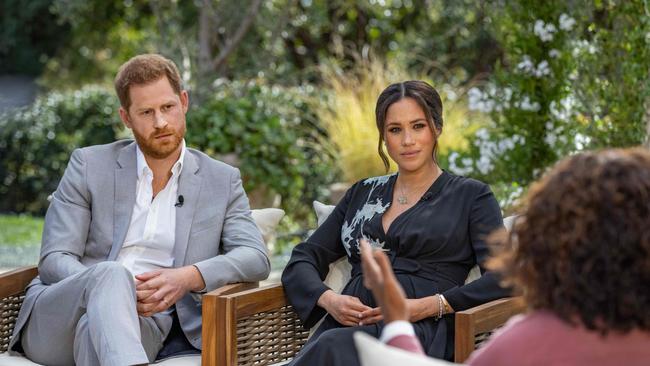
Those who know him insist that Charles has no intention of corralling the wayward royal fringe in the way blunt-speaking Philip had done; instead, Charles’s instinct is to cast them adrift.
Charles has firm plans for a slimmed-down monarchy. That conveniently will sideline the embarrassment of his 61-year-old brother Andrew who, once second in line to the throne, is No 8 behind US-residing toddler Archie Mountbatten-Windsor.
When Charles dismissed the taxpayer police protection afforded to Andrew’s two daughters, princesses Eugenie and Beatrice, Andrew was furious and wrote to the Queen stating his objections. The Queen backed Charles.
Andrew, however, is not giving up his status so quickly. He mistakenly believes he can make a public comeback from the 2019 car-crash interview about his relationship with convicted sex offender Jeffrey Epstein yet continue to avoid making himself available to the US courts as a witness.
This week Andrew, who served in the Falklands war as an Apache helicopter pilot, wanted to wear the uniform of an admiral, the rank he had declined on his 60th birthday while the Epstein furore was at its peak.
Insiders suggest that Andrew agreed not to wear the uniform, which was the rank of his father. But when it became apparent that Harry, who had served twice in Afghanistan, would be the only senior male royal at the service not wearing a military uniform, having been stripped of his honorary military titles after leaving the royal family, the Queen stepped in and decided everyone would wear tailcoats and black dresses.
Philip had long insisted he had not retired from the Royal Navy, a job he gave up in 1951 when Princess Elizabeth’s father, King George became ill, but that he was just on leave.
It is yet to be seen if discomfiture about Harry not being able to wear the Blues and Royals dress uniform that he wore at his 2018 wedding, and the protocol consequences of Harry’s decision to leave the royal family at the beginning of last year, will stoke any resentment that Philip has been thus denied a sharp-saluted farewell he may have imagined.
Harry and Meghan were always going to be part of Charles’s inner echelon, but their decision to exit the royal family has been inflamed by their misery, shouted from their Montecito, California, mansion, and distaste for royal life and untested allegations of racism and prejudice.
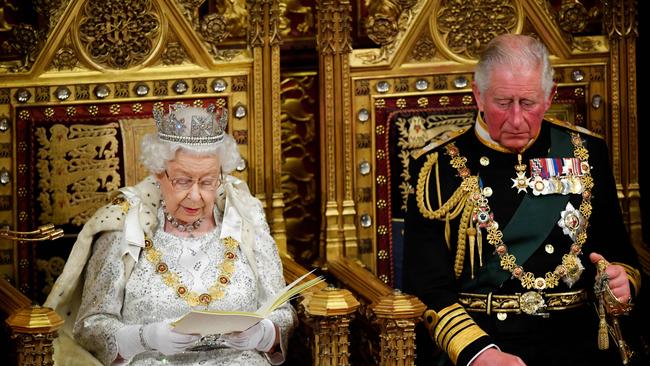
All of which has brought Charles and his son and heir William closer together, while Harry continues to drift further apart from his family. Charles and William, in conjunction with the Queen, were firm in their resolve that the Sussexes couldn’t be part-time royals.
Only because of the Queen’s mollifying influences and a desire to show that the family is united have there been public concessions to Harry. Meghan was unable to travel across the Atlantic because she is pregnant with the couple’s second child.
In the eulogies to Philip this week, the vast distancing of the once close siblings were starkly apparent. William praised his grandfather as an “extraordinary man and part of an extraordinary generation”, with an “infectious sense of adventure as well as his mischievous sense of humour”, and acknowledged his “enduring presence through good times and the hardest days’’ — a reference to the death of his mother, Diana, when he was only 15. But the last paragraph from William, added at the last minute, was pointed at Harry’s claims that William felt trapped in the royal institution.
William said: “Catherine and I will continue to do what he would have wanted and will support the Queen in the years ahead. I will miss my Grandpa, but I know he would want us to get on with the job.”
Harry, for his part, spoke of Philip being “authentically himself’’, with a seriously sharp wit, and of how he could hold the attention of any room due to his charm — and also because “you never knew what he might say next”. He added, “he was my grandpa: master of the barbecue, legend of banter and cheeky right ’til the end”.
Where Philip once may have been able to bring the two brothers together, Charles is too enmeshed in the drama himself, accused of cutting off Harry’s finances in his new independent life and of being callously indifferent to the struggles the Sussexes faced adjusting to the pressure of British press headlines.
Undoubtedly this funeral could be a chance for all parties to offer olive branches for the embarrassment and intense hurt caused.
Former British prime minister John Major, who was appointed as special guardian to William and Harry after their mother’s death in 1997, was hopeful of such a brotherly reconciliation: “The friction that we are told has arisen is a friction better ended as speedily as possible. A shared emotion, a shared grief at the present time because of the death of their grandfather, I think, is an ideal opportunity.”


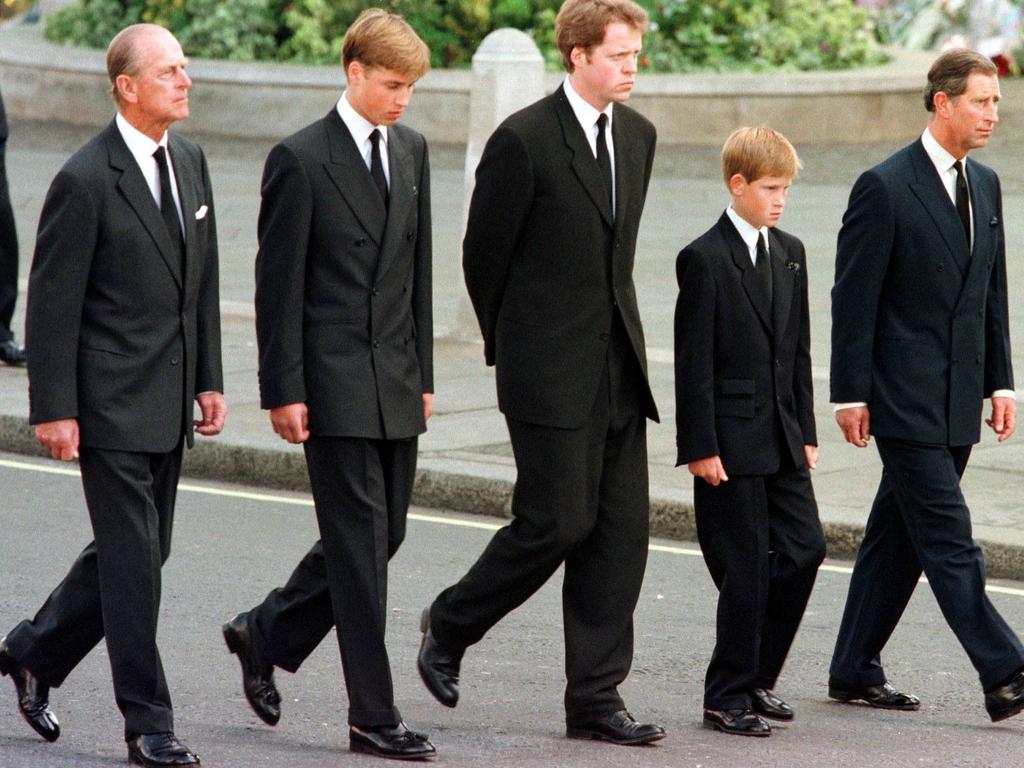
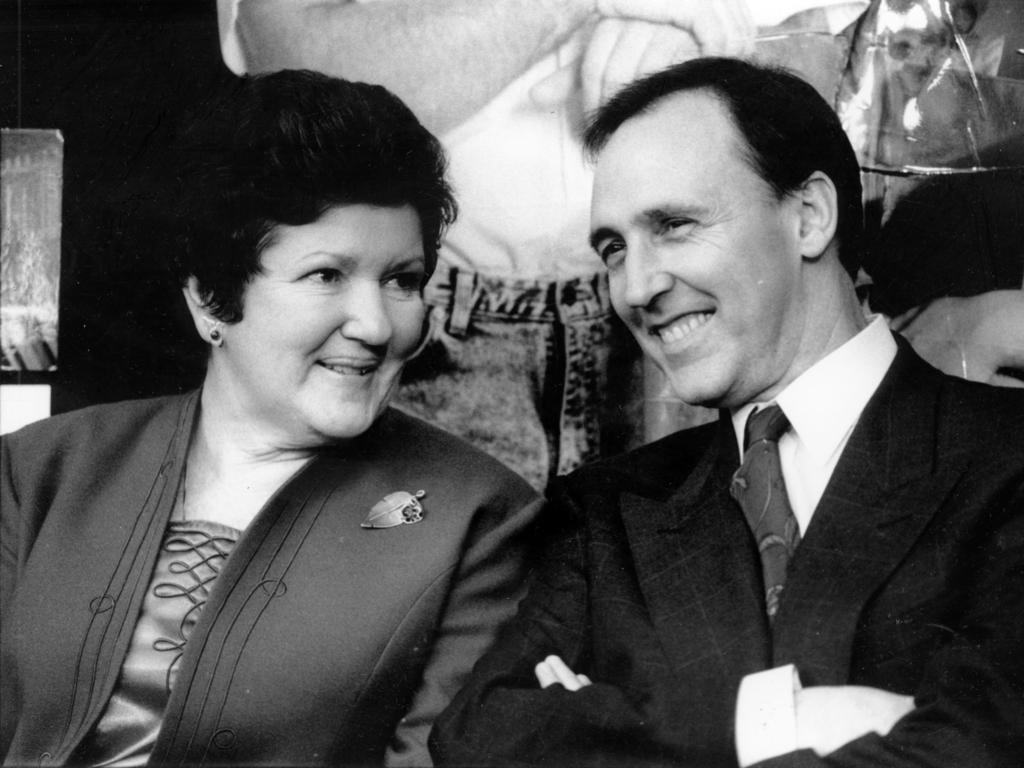

To join the conversation, please log in. Don't have an account? Register
Join the conversation, you are commenting as Logout